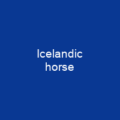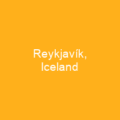Iceland: A Land of Volcanoes, Vikings, and Vast Possibilities
Imagine a land where the past meets the future, where ancient sagas intertwine with cutting-edge technology, and where every day is an adventure in nature. Welcome to Iceland, a Nordic island nation that captivates with its dramatic landscapes, rich history, and innovative spirit.
The Land of Fire and Ice
Iceland sits at the juncture of the North Atlantic and Arctic Oceans, south of the Arctic Circle. It’s a place where you can witness the raw power of nature in all its glory—volcanoes spewing lava, glaciers calving icebergs, and geysers shooting steam into the air. Iceland is not just a country; it’s an experience.
A Brief History
Settlement began in 874 AD, with the first permanent residents arriving around that time. The island’s name itself tells a story of its harsh climate and abundant ice—derived from ancient Norse sources, including sagas like Naddodd, Garðar Svavarsson, and Flóki Vilgerðarson. These tales paint a picture of early settlers braving the elements to establish their homes.
From Independence to Modernity
Iceland’s journey from a commonwealth under Norwegian rule to an independent nation is marked by resilience and determination. The Danish–Icelandic Act of Union in 1918 recognized Iceland as a fully sovereign state, paving the way for its modern era.
Economic Growth and Challenges
While industrialization brought prosperity, the country faced significant challenges, including the Great Recession that hit hard in 2008. Despite these setbacks, Iceland has managed to stabilize its economy and invest heavily in innovation, making it one of the most developed countries in the world.
A Land of Diversity
Iceland’s landscape is a tapestry of diverse ecosystems—from tundra and glaciers to lush forests and vibrant geothermal areas. The country’s climate, influenced by its unique geography and global warming, presents both challenges and opportunities for its inhabitants.
Flora and Fauna
The flora in Iceland consists mainly of grassland regularly grazed by livestock, with the northern birch being the most common native tree. Despite deforestation, large-scale reforestation efforts have increased forest cover significantly since the 1990s.
Politics and Society
Iceland is a parliamentary representative democratic republic where women first gained the right to vote in 1915. The country’s political landscape is characterized by coalition governments, with no single party having a majority of seats in parliament.
Culture and Traditions
Icelandic culture is deeply rooted in North Germanic traditions, preserving the language closest to Old Norse. Literature plays a significant role, with sagas like Njáls saga and Grænlendinga saga being celebrated works of Icelandic literature.
Art and Entertainment
The arts in Iceland are vibrant, from traditional ballads called rímur to modernist poets like Steinn Steinarr. The country’s music scene is diverse, with acts ranging from folk and pop to alternative rock and classical composers like Anna S. Þorvaldsdóttir.
Media and Entertainment
Iceland has several television stations, radio channels, newspapers, and websites. Popular shows include LazyTown and Trapped, while films like Dancer in the Dark have brought international recognition to Icelandic cinema.
Cuisine and Sports
Icelandic cuisine is a blend of traditional dishes like skyr, hákarl (cured shark), and puffin, alongside modern culinary innovations. Sport plays a significant role in Icelandic culture, with traditional sports like Glíma wrestling and handball coexisting with popular sports like football and basketball.
Outdoor Activities
The country offers excellent conditions for outdoor activities such as skiing, fishing, snowboarding, ice climbing, and rock climbing. Iceland hosts various international sports events, including the Arctic Open golf tournament and World’s Strongest Man competitions.
A Future of Innovation and Sustainability
With a focus on renewable energy sources like geothermal and hydropower, Iceland aims to cut greenhouse gas emissions by 40% by 2030. The country’s education system is considered excellent, with high rankings in global assessments.
Conclusion
Iceland stands as a testament to the power of resilience, innovation, and natural beauty. From its ancient sagas to its cutting-edge technology, Iceland continues to captivate the world with its unique blend of history and modernity. As it looks towards the future, Iceland remains committed to sustainability and progress, ensuring that its remarkable landscapes and rich culture continue to thrive.

You want to know more about Iceland?
This page is based on the article Iceland published in Wikipedia (retrieved on March 7, 2025) and was automatically summarized using artificial intelligence.






